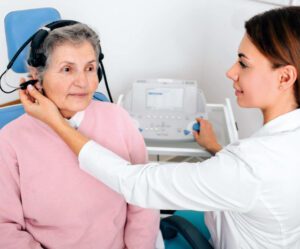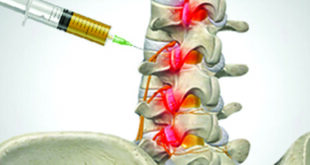By the audiologists at Winter Haven Audiology & Ridge Audiology — Kevin T. Barlow and Scheyere-Ann Moir
 Because hearing loss often occurs gradually, few who suffer from it realize how it affects all aspects of health, including overall quality of life. Research over the past 15 years has only begun to stress the importance of seeking treatment when hearing loss becomes a factor in daily life, but only one in five people actually seeks treatment after learning they aren’t hearing their best. The four in five Americans that don’t use hearing aids can sometimes delay treatment for so long that communication — even in the most optimal situations — becomes problematic.
Because hearing loss often occurs gradually, few who suffer from it realize how it affects all aspects of health, including overall quality of life. Research over the past 15 years has only begun to stress the importance of seeking treatment when hearing loss becomes a factor in daily life, but only one in five people actually seeks treatment after learning they aren’t hearing their best. The four in five Americans that don’t use hearing aids can sometimes delay treatment for so long that communication — even in the most optimal situations — becomes problematic.
Many are not aware of the social and psychological effects of hearing loss; if they were, they would take their hearing health more seriously. Impaired hearing is strongly associated with increased risk of dementia, anxiety, and depression, as well as poorer physical and mental health.
Hearing Loss and Your Overall Health
The effects of hearing loss are like dominos — one thing sets off another, which sets off another. Hearing loss can cause fatigue because of the strain of trying to hear. This can lead to stress, which causes other health issues such as headaches and sleeping and eating problems.
When the television is on mute, we disengage from the message. We are not getting the full effect of the story; this is an example of what happens when someone is affected by hearing loss. The psychological and social detriments of hearing loss are intertwined. Being unable to hear what’s being laughed about or keep up with the conversation can cause multiple feelings like frustration, depression, and embarrassment. Relationship problems can also arise due to lack of communication and frustration between everyone involved.
About Hearing Loss
The decibel level (sound pressure) and length of exposure determine how much damage happens to your ears. Loud sounds destroy the fine hairs that stimulate the auditory nerve fibers, which carry sound data to the brain. Damage to these hairs is permanent and results in hearing loss.
Typically, 85 decibels (a train whistle, for example) is where hearing loss starts to happen; at this noise level, it takes about eight consecutive hours to damage hearing, whereas at 100 dB (the sound of a motorcycle, for example), it takes only
15 minutes. For every 3-dB increase in volume, the maximum exposure time is cut in half.
Hearing Protection and Prevention
Hearing health is whole-body health. If you take preventive and educated measures when it comes to your health, you will be helping your hearing and vise versa.
Hearing protection is essential to reduce the risk of noise-induced hearing loss, which is the most common hearing loss. Wear earplugs when around loud noise — and not at concerts but at sporting events, when hunting, or when working with power tools. Hearing protection comes in all kinds of forms that fit your lifestyle, budget, and needs. Ask a local audiologist whether earmuffs, foam earplugs, or custom earplugs are best for you.
Prevention comes from being aware. Knowing the signs, symptoms, and causes of hearing loss will help you be attuned to hearing problems. The best way to do this is to get your hearing checked regularly. If something happens to your hearing, don’t hesitate — get checked out right away by an audiologist. Hearing tests are an extremely easy, quick, and painless way to determine if you have hearing loss.
If you think you may have hearing loss, make an appointment with your local audiologist to get it checked out. Have questions? Our passion is hearing education and treatment.
Call our Doctors of Audiology at (863)594-1976 or learn more online at WinterHavenAudiology.com
Winter Haven Audiology
510 1st St S | Winter Haven
Ridge Audiology
704 SR 60 E | Lake Wales
 Central Florida Health and Wellness Magazine Health and Wellness Articles of the Villages
Central Florida Health and Wellness Magazine Health and Wellness Articles of the Villages



